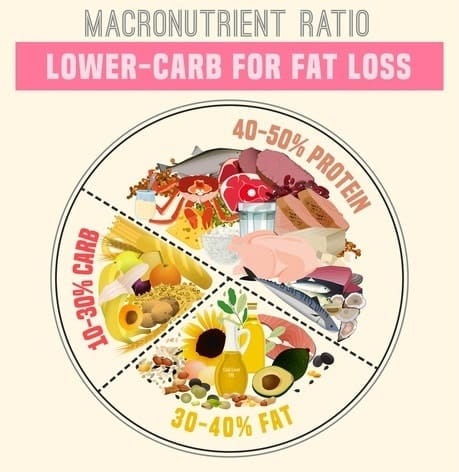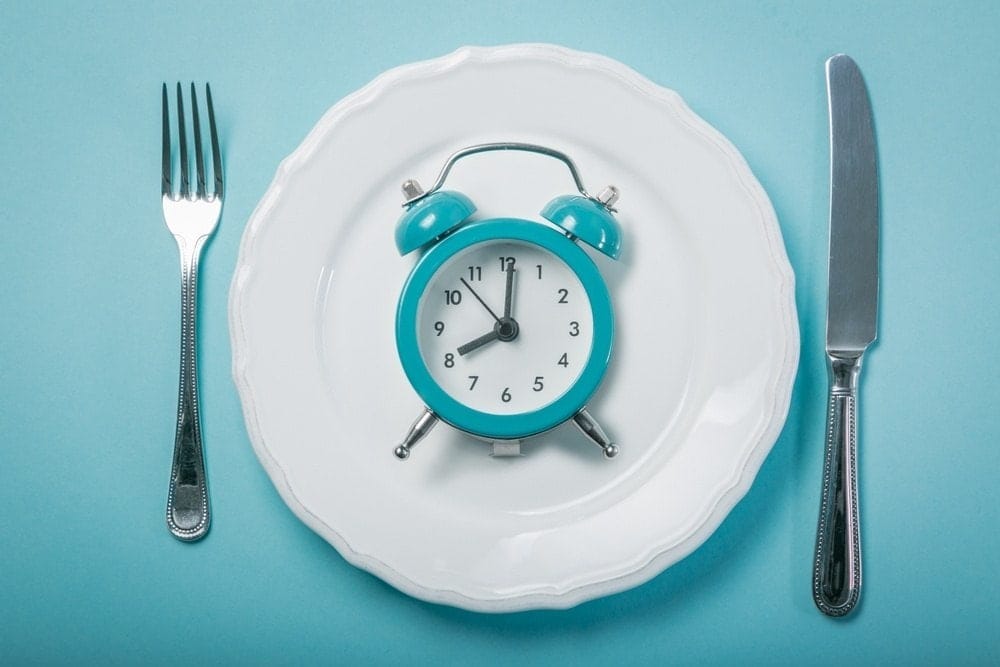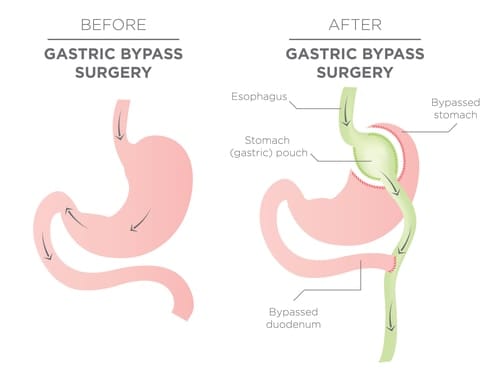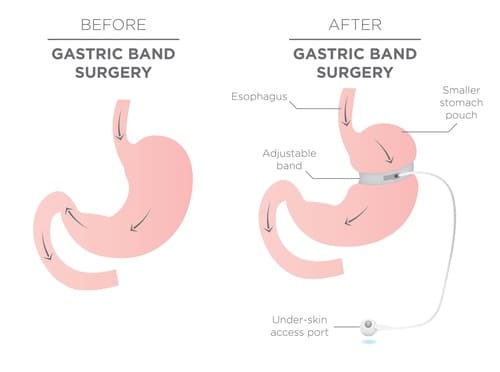Sculpt Your Combat Arts Physique: Effective Weight Loss Approaches
Over time, many approaches to losing weight sprang up. Some of them ranged from the bazaar, like ingesting tapeworms, to the unsustainable deprivation. In recent years, specific types of diet have come out to help people lose weight.
The next step in The Fighter’s Nutritional Blueprint: Creating a Combat Arts Ready Body is to establish a baseline understanding of the different weight loss approaches, dispel any myths to help you make an informed intelligence decision about your weight loss goals and weight management.
Exploring the Low Fat Approach: Fueling Weight Loss through Healthy Choices
Low-fat diets are a takeoff of low-calorie diets. They intend to remove enough fat from your diet that it forces the body to shed weight. Unfortunately, when these fats got cut back, the amount of diabetes and heart disease, not to mention obesity, skyrocketed.
The human body needs a tremendous amount of fat every day to sustain life and function optimally, between 50-70% of caloric intake. The zealous cutting of fat out of the diet provided an excess amount of sugars. As we learn more about how fat work in the body, we realize we need a wide diversity of healthy fats. This has led to a moderate fat diet that focuses on healthy fat and eliminates saturated fats. Again, people zealously cutting out saturated fats deprive themselves of healthy nutrients.
Many of the healthy saturated fats get converted into hormones directly rather than having to go through a multi-step process to get there. In the nutritional community, low-fat diets are considered outdated unhealthy and not a viable long-term approach to weight loss and control.
Unveiling the Benefits of a Low Carbohydrate Diet: A Path to Sustainable Weight Loss
In opposition to low-fat diets, low-carbohydrate diets have become widely accepted. It started off with the Atkins craze. People jumped on the high protein, high fat, and exceptionally low carbohydrate diets to overcome high cholesterol, heart disease, and obesity.

Low-to-moderate carbohydrate diets are considered very healthy. This is true as long as people do not substitute processed foods for healthy foods.
The fats chosen for cooking and flavoring need to be healthy, natural fats like butter, coconut oil, olive oil, and rendered fats. Processed fats like vegetable oil, canola oil, and rapeseed oils contain too many omega-6 fatty acids that lead to heart disease.
Exceptionally low carbohydrate diets are not considered sustainable by the nutritional community. Typical, healthy, moderate carbohydrate diets range from 50 grams of carbohydrates per day to approximately 75 grams per day.
For competition fighters, daily training, and high energy martial arts, like Kung Fu, Capoeira, and kickboxing, daily intakes of 75g to 100g are still considered moderate carb diets. Firas Zahabi, owner of TriStar Gym in Montreal, Quebec, Canada supports using a moderate carb diet, but that people have to be smart and eat veggies.
This is different than a ketogenic diet, or keto plan. A ketogenic diet puts a sever restriction on carbohydrates to the point it triggers the body to use fats as its primary energy source. The waste products can be detected in the urine as ketones. The biologic function is a natural and healthy process reserved for periods of low food and starvation conditions. It’s also what killed most Type 1 Diabetics before injectable insulin.
Ketogenic diets are in dispute in the nutritional community. They are very effective at getting people to lose weight, but long-term studies have not shown over-all health when the diet is followed for more than a few weeks.
Laila Ali, daughter of legendary boxer Muhammad Ali, is an accomplished boxer herself who has embraced a low carbohydrate diet as part of her overall nutrition strategy. By reducing her intake of carbohydrates, particularly refined sugars and processed grains, Laila focuses on consuming lean proteins, healthy fats, and a variety of fruits and vegetables. This approach helps her maintain weight while fueling her intense training sessions and optimizing her boxing performance.
The Transformative Potential of Fasting: Harnessing Intermittent Energy Restriction for Shedding Pounds
Fasting is a practice that has been around nearly as long as religion has been around. Periodic fastings were used to help clear the body and the spirit for divine intervention. Healers in ancient times noticed people became more energetic and healthier during periods of fast. Fasting then moved into the healing realm to overcome disease, encourage the body to heal, and supplement medicine.
Today, fasting is used for religious and health purposes. Many people will recognize the body actively reject food when people are sick. This is a natural, and healthy response by the body. Since 70% of the immune system resides in the gut, the body can either expand its energy fighting food or invaders around the body.
People would do very well to listen to their bodies during times of illness and not eat when they are not hungry.
Detoxification diets have become more popular as people are becoming more aware of the chemicals and toxins in our environment. Most detoxifications are fasts.
With a severe limitation of intake, the body needs to pull on reserves of sugars and triglycerides to sustain life. This causes many toxins to be released back into the system, which can then be flushed out.

Fasting and detoxification are healthy when done correctly. Everything from a short, one day fast to a multi-week fast is achievable when you work with a nutritionist. A person should not attempt to fast longer than three days without the advice of the nutritionist.
Mackenzie Dern, a highly regarded Brazilian Jiu Jitsu practitioner, incorporates intermittent fasting into her training regimen to support weight management and overall health. Intermittent fasting involves cycling between periods of fasting and eating within specific time windows. By practicing this approach, Dern aims to optimize her body's fat-burning mechanisms while still ensuring she consumes adequate nutrients during her eating periods. This strategy has helped her maintain a competitive weight class and enhance her performance on the mat.
Decoding Glycemic Index vs. Glycemic Load: Making Informed Dietary Choices for Weight Loss
When the calorie theory started falling apart, the idea of the glycemic index was created. This is a measure of how much food will impact blood sugar. It’s been a useful tool for diabetics, but it’s far from perfect. For example, many people recognize that carrots and peas have high glycemic indexes, but they do not impact blood sugar the same, nor do they have the same effect as pure sugar.
The evolution of glycemic index became the glycemic load. This is a measure of what the sugar in a particular food will do to the blood sugar in a person over time. Thus, it has resolved the issue of why carrots and peas have less of an impact on blood sugar than pure sugar does.

The glycemic load takes into account how the body digests food, the speed at which various sugars are absorbed, and accessory nutrients within particular foods.
When a person eats carrots, the vitamin A, vitamin D, and indigestible fibers within the carrots slow the absorption of sugar. Many of the sugars are bound up in fibers and long-chain complex carbohydrates. It takes more time and work for our body to digest this food and absorb it. That means the sugars the body does absorb from the carrots take longer to show effect.
The glycemic index is not a good example of a diet plan, but it can help people who are struggling with sugar intake. It is an invaluable tool for diabetics. Pro MMA fighter Kevin Kellerman focuses on eating healthy foods, low in both the glycemic index and the glycemic load to manage his Type 1 Diabetes. Kellerman states, “Good quality, healthy, nutritious food makes so much of a difference in blood sugars and indirect effect energy.”
Donnie Yen, an acclaimed martial artist and actor known for his exceptional skills in Kung-Fu, emphasizes a balanced approach to nutrition. Yen's dietary philosophy revolves around consuming whole foods, incorporating a variety of nutrient-dense fruits, vegetables, lean proteins, and healthy fats. By practicing portion control and focusing on nourishing his body with quality nutrients, Yen maintains his physique and sustains high energy levels required for intense Kung-Fu training and performances.
Cognitive Behavioral Strategies: Shaping Habits for Lasting Weight Loss Results
As with most bad habits, overeating and consuming too much food is often based on behavioral issues. Psychologists, life coaches, and health coaches center many of their practices on helping people discover the actual underlying reason why food takes up so much of our lives.
By changing some of these habits and underlying causes, many people naturally start choosing healthier foods and less of it.
There have been hundreds of different underlying behaviors and habits associated with weight gain. If you believe you have some of these issues, we recommend talking to a nutritionist or health coach to discover your underlying beliefs and getting solid advice for changing some of the behaviors.
You are already doing many of the same strategies in your training. What techniques are you applying to practice daily, keep aware, and choose wisely? Discipline is the ability to do what needs to be done when it needs to be done without having someone tell you to do it.
Your diet is the perfect example of long-term discipline. Don’t eat the candy and eat the apple. It’s all about control and discipline. Now, apply that same effort to your diet. Are you ready to readjust your mindset and focus on eliminating behavioral eating. Sign up today to positively change your eating habits!
Understanding Weight Loss Medications: A Guide to Pharmaceutical Support
Medications for achieving your weight loss goals do work. Unfortunately, every single weight-loss medicine that has been on the market has caused severe health side effects and have been removed. Currently, there are no medications on the market that are considered safe.
Medication should be a last resort for anyone looking to lose weight. Many times, people choose pills and supplements for losing weight because they don’t want to change the underlying behavior that causes them to gain weight. This is one of the ways people get into yo-yo dieting.
Once the medication stops, people gain the weight back they had previously lost. The underlying behavior and habits are still present. People who use medicine rarely learn how to cook healthy food or choose healthy meals.
Most weight loss medications have dehydration as a side effect, which is a massive problem in the competition fighter world. Additionally, heart problems and long-term increased the risk of heart attacks should warn most martial artists away from any weight loss medication or supplementation.
In fact, fights were canceled because of extreme weight loss and these medications. In April 2018, Fighter Max Holloway was declared medically unfit to fight due to rapid weight loss and suspected medication abuse.
As there are no safe medications for achieving weight loss goals, we do not recommend seeking out such medicines or choosing supplements to help weight loss.
Weight Loss Surgery: Surgical Interventions for Long-Term Weight Management
Weight loss surgery is also not recommended. Studies have shown that significant behavior changes are necessary before the surgery to predict success and health afterward.
Unfortunately, studies show at least half of all surgeries result in patients regaining the weight lost, with some evaluations as high as ...
The studies have shown it is a lack of self-discipline that leads to the weight gain.
There are various forms of weight loss surgery including:
Gastric Bypass
Gastric Bands
Gastric Sleeves
Unfortunately, none of these change a person's behavior without the person choosing to change the behavior. Additionally, people who are looking at weight loss surgery have to demonstrate they are making better choices and can lose the weight on their own. We believe that if you can drop the weight on your own through proper diet and exercise, you should continue to do so. That way, you don't damage your body.
Most people will not keep the weight they lose off after two years. Since they have not changed their eating habits, they’re still eating more food than they should, but now with restricted nutrients. Then, they overeat to the point they stretched out what is remaining of their stomach.
Weight loss surgery is not a viable option for people in the martial arts. The operation itself involves cutting through the core muscles, which permanently damages the structural integrity of your core. This will limit your movements and ability to take a hit. Additionally, the bands and sleeves are physical objects that can be damaged or used to cause further damage to the body.
Fad Diets Come & Go!
Learn How to Create a Nutritional Plan that will Boost Your Fighting Energy and Improve Weight Loss
Embracing a Plant-Based Lifestyle: Nourishing Weight Loss with a Cruelty-Free Approach
It looks good on the surface, eat everything but stuff that can look back at you. Research shows vegetarian and vegan diets help people to be healthy, right?
Not quite. Nearly all short-term (<6 months) studies have shown that a meatless diet is exceptionally healthy and helps reduce disease in all categories. However, there are no long-term studies that show the same results.
Long-term vegetarian and vegans show nutrient deficiencies, bone loss, impaired digestion, amenorrhea, and depression.
The most significant issues with vegetarian and vegan diet studies appear to be compliance. The average person craves meat and the nutrients within mean between two and five years after starting a vegetarian lifestyle. This makes studies of 10 years or more nearly impossible.

Most results are thrown off by the inclusion of wheat and grains. In vegetarian diets that are low in grains, the nutritional deficiencies are higher and the risk of illness increased.
However, vegetarians that eat more grains tend towards obesity and lifestyle diseases like heart disease and diabetes. This is not a pass to eat all the meat you want.
Buakaw Banchamek, a renowned Thai professional Muay Thai fighter, embraces a predominantly plant-based diet to fuel his intense training and maintain peak performance. Banchamek's nutrition revolves around consuming a wide variety of plant-based foods such as fruits, vegetables, whole grains, legumes, and plant-based protein sources. By emphasizing plant-powered nutrition, Banchamek ensures he gets an abundance of essential nutrients while supporting his weight management goals and optimizing his performance in the ring.
Other Fad Diets
Thousands of fad diets have appeared over the years. Most work, but have horrible and debilitating side effects. The reason for their success and expansion is they worked for someone.
The reason they aren’t still around is they don’t work for long, are too complicated, or hurt people. The biggest key to how well a diet works and is right for you is to see how much study is put into supporting it and how much opposition it has.
First, universities and research centers only put effort and money into research that will pay off in the end. Fad diets don’t last long enough to study. That’s why it took nearly a decade for low-carb diets to have any scientific validation they work.
Secondly, nutritionists and dietitians know most fad diets fade away in a few months to a few years if they don’t work. Diet drinks fall into this category; there have been hundreds of them.
Finally, you should look at research that supports the diet. All good weight loss programs will find dozens of studies to show why the various bits of their diets work. Fad diets grasp at straws or ignore basic physiology altogether.
Some of the top fad diets include diet drinks (Shakeology, Isogenix), the alkaline diet, Weight Watchers (their diet plan has significantly changed five times), volumetrics diet, raw foods diet, Nutrisystem, Master Cleanses, baby food diet, and cabbage soup diet.
Food for Thought (No Pun Intended)
Famous combat arts athletes serve as prime examples of how tailored nutritional approaches can play a crucial role in weight management and performance enhancement. By adopting specific dietary strategies aligned with their individual needs and goals, they have achieved remarkable success in their respective disciplines.
It's important to note that while these athletes have found success with their chosen nutritional approaches, what works for them may not work for everyone. Each individual is unique, and finding the right approach requires careful consideration of personal preferences, health factors, and consultation with qualified professionals.
By studying the experiences of these notable athletes and seeking guidance from sports nutritionists or registered dietitians who specialize in combat arts, practitioners can gain valuable insights into how nutrition can positively impact their weight loss journey. Combining proper nutrition with consistent training and a disciplined mindset, combat arts athletes can unlock their full potential, improve their performance, and achieve their weight loss goals.
Remember, the path to success in combat arts is multifaceted, and a comprehensive approach that encompasses training, nutrition, recovery, and mindset is key. By drawing inspiration from these athletes and tailoring nutritional strategies to individual needs, combat arts practitioners can optimize their weight loss efforts and embark on a journey of self-improvement and excellence in their chosen disciplines.
To learn how to lose weight quickly and maintain your desired weight over time read the next article on “Keys to Long-Term Weight Control.”

Frequently Asked Questions
What is the Most Effective Weight Loss Approach?
The most effective approach to achieving weight loss goals involves a combination of healthy eating and regular physical activity. By adopting a balanced and nutritious diet that is low in calories and high in essential nutrients, individuals can create a calorie deficit, leading to weight loss. Incorporating regular exercise into the routine further enhances weight loss efforts by burning additional calories and increasing metabolism. It is essential to maintain consistency and make sustainable lifestyle changes to achieve long-term success.
What is the Fastest Way to Lose Weight?
While rapid weight loss might be tempting, it's important to prioritize safety and sustainability. The fastest way to lose weight is by creating a significant calorie deficit through a combination of a balanced diet and increased physical activity. This can be achieved by reducing calorie intake moderately, choosing nutrient-dense foods, and engaging in high-intensity interval training or other calorie-burning exercises. However, it's crucial to consult with a healthcare professional or a registered dietitian before starting any intense weight loss program to ensure it aligns with individual needs and health conditions.
What is the Ideal Approach to Weight Loss?
The ideal approach to weight loss focuses on creating healthy habits and making sustainable lifestyle changes. It involves adopting a well-rounded eating plan that emphasizes whole, unprocessed foods and incorporates all essential nutrients. Portion control, mindful eating, and regular physical activity play integral roles in achieving and maintaining a healthy weight. Setting realistic goals, tracking progress, and seeking support from healthcare professionals or support groups can also enhance the chances of long-term success. Remember, each person's ideal approach to weight loss may vary, so it's crucial to find a strategy that works best for individual needs and preferences.


